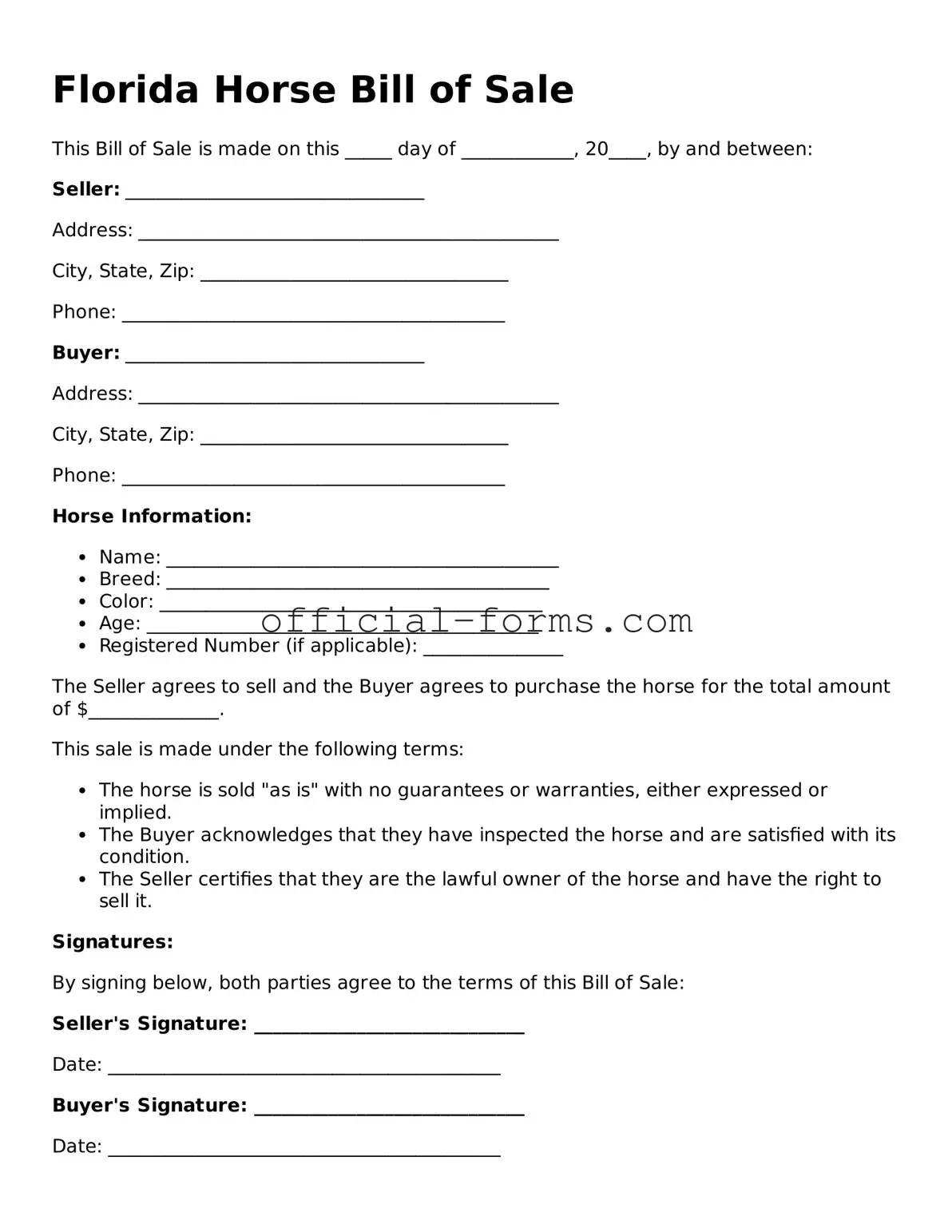When filling out the Florida Horse Bill of Sale form, many people inadvertently make mistakes that can lead to complications later on. One common error is failing to include all required information. Essential details like the horse's name, breed, and registration number should be clearly stated. Omitting any of this information can create confusion and may even affect the legality of the sale.
Another frequent mistake is not providing accurate identification for both the buyer and the seller. Each party should include their full name, address, and contact information. If this information is incomplete or incorrect, it may hinder future communication regarding the horse.
People often overlook the importance of including the sale price. Leaving this field blank or writing an unclear amount can lead to disputes. A clear, agreed-upon price should be documented to avoid any misunderstandings later.
Additionally, some individuals forget to specify the payment method. Whether the payment is made in cash, check, or another form, it should be clearly stated in the bill of sale. This transparency helps protect both parties and ensures that everyone is on the same page.
Many sellers neglect to provide a warranty or guarantee regarding the horse's health or soundness. If the horse has any known issues, these should be disclosed in the bill of sale. Failing to do so may lead to legal complications if the buyer discovers problems after the sale.
Another mistake is not having the document signed by both parties. A bill of sale is not valid unless both the buyer and seller have signed it. This signature serves as a confirmation of the agreement and protects the interests of both parties.
People sometimes use outdated forms or templates. Laws and regulations can change, so it’s essential to ensure that the form being used is the most current version. Using an outdated form may result in invalidity or unenforceability of the sale.
Moreover, some individuals forget to keep a copy of the completed bill of sale for their records. Having a copy is crucial for both the buyer and seller. It provides proof of the transaction and can be helpful in case any disputes arise in the future.
Another common oversight is not including any additional terms or conditions that may apply to the sale. If there are specific agreements regarding the horse's care, training, or future ownership, these should be documented in the bill of sale. This clarity can prevent misunderstandings later.
Finally, people sometimes underestimate the importance of reviewing the completed form before submitting it. Taking the time to double-check all information can help catch errors that could complicate the sale. A thorough review ensures that everything is accurate and complete, providing peace of mind for both parties involved.

